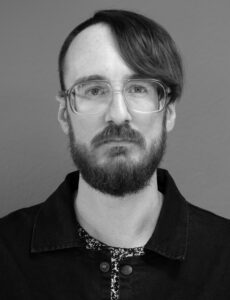 Professor of the Practice
Professor of the Practice
[email protected]
Monterey, CA
831.647.6697
@HerzogSM
Areas of Research
- Global nuclear order and multilateral nuclear governance
- Nuclear arms control verification
- Disarmament and moving beyond nuclear deterrence
- Public opinion on nuclear weapons and nuclear energy
- Emerging and disruptive technologies
Background
Dr. Stephen Herzog is Professor of the Practice at the James Martin Center for Nonproliferation Studies (CNS). He is Academic Co-Chair of the Beyond Nuclear Deterrence Working Group, an initiative of the MacArthur Foundation and Harvard University’s Project on Managing the Atom. Dr. Herzog is drafting a book manuscript about multilateral nuclear arms control and has several other ongoing projects on nuclear deterrence, proliferation, and disarmament. He is also interested in the role of emerging and disruptive technologies in international security. His research draws on archival studies, elite interviewing, and survey experiments.
Prior to joining CNS, Dr. Herzog was a Lecturer and Senior Researcher in Nuclear Arms Control at ETH Zurich, the Swiss Federal Institute of Technology. He has also been a Research Fellow at the Harvard Kennedy School’s Belfer Center for Science and International Affairs. Before completing his Ph.D. in Political Science at Yale University, Dr. Herzog was a Program Manager responsible for arms control treaty verification initiatives at the U.S. Department of Energy’s National Nuclear Security Administration and also worked at the Federation of American Scientists. He has worked, researched, and traveled in over 100 countries.
Dr. Herzog’s research is published or forthcoming in Contemporary Security Policy, Energy Research & Social Science, International Security, the Journal of Conflict Resolution, the Journal for Peace and Nuclear Disarmament, the Journal of Peace Research, the Journal of Politics, the Naval War College Review, the Nonproliferation Review, Perspectives on Politics, Risk Analysis, and Survival. His public affairs commentary has been featured in outlets including Arms Control Today, the Bulletin of the Atomic Scientists, the Financial Times, the National Interest, Science, War on the Rocks, and the Washington Post. He co-edited Atomic Backfires: When Nuclear Policies Fail (MIT Press, 2025).
Education
Dr. Herzog holds a B.A. in International Relations from Knox College, an M.A. in Security Studies from the Edmund A. Walsh School of Foreign Service at Georgetown University, and an M.A., M.Phil., and Ph.D. in Political Science from Yale University.
Selected Writing
- Dual-Track Nuclear Disarmament: Institutional Design of the Treaty on the Prohibition of Nuclear Weapons
- Rethinking the Deterrence-Disarmament Dichotomy: The Complex Landscape of Global Nuclear Weapons Preferences
- Atomic Backfires: When Nuclear Policies Fail
- Atomic Responsiveness: How Public Opinion Shapes Elite Beliefs and Preferences on Nuclear Weapon Use
- Artificial Intelligence and Nuclear Weapons Proliferation: The Technological Arms Race for (In)visibility
- Layered Verification: Irreversible Nuclear Disarmament and Highly Latent Nuclear States
- Winning Hearts and Minds? How the United States Reassured During the Russo-Ukrainian War
- The Trilateral Dilemma: Great Power Competition, Global Nuclear Order, and Russia’s War on Ukraine
- NATO and Emerging Technologies—The Alliance’s Shifting Approach to Military Innovation
- The Altered Nuclear Order in the Wake of the Russia-Ukraine War
- Under the Umbrella: Nuclear Crises, Extended Deterrence, and Public Opinion
- Beyond Nuclear Deterrence
- The War in Ukraine and Global Nuclear Order
- Durable Institution Under Fire? The NPT Confronts Emerging Multipolarity
- Antinormative Messaging, Group Cues, and the Nuclear Ban Treaty
- Backchannel Non-Proliferation: Militarily Non-Aligned States and Nuclear Diplomacy
- The First TPNW Meeting and the Future of the Nuclear Ban Treaty
- Public Opinion on Nuclear Energy and Nuclear Weapons: The Attitudinal Nexus in the United States
- Japanese Public Opinion, Political Persuasion, and the Treaty on the Prohibition of Nuclear Weapons
- Correspondence: Clandestine Capabilities and Technological Diffusion Risks
- “What About China?” and the Threat to US–Russian Nuclear Arms Control
- The Nuclear Fuel Cycle and the Proliferation “Danger Zone”
- A Way Forward with North Korea: The Comprehensive Nuclear-Test-Ban Treaty
- The Nuclear Test Ban: Technical Opportunities For the New Administration
CNS Work
- Rethinking the Deterrence-Disarmament Dichotomy: The Complex Landscape of Global Nuclear Weapons Preferences
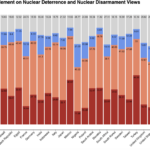 Dr. Stephen Herzog and co-authors conducted––and published research on––the largest academic public opinion survey on attitudes toward nuclear weapons to date.
Dr. Stephen Herzog and co-authors conducted––and published research on––the largest academic public opinion survey on attitudes toward nuclear weapons to date. - Dual-Track Nuclear Disarmament: Institutional Design of the Treaty on the Prohibition of Nuclear Weapons
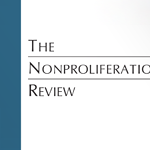 Dr. Stephen Herzog publishes an article that examines and answers common objections to the Nuclear Ban Treaty.
Dr. Stephen Herzog publishes an article that examines and answers common objections to the Nuclear Ban Treaty. - Atomic Backfires: When Nuclear Policies Fail
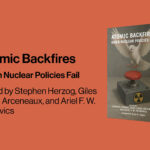 Dr. Stephen Herzog is the lead editor of a newly published edited volume on counterproductive consequences in nuclear politics.
Dr. Stephen Herzog is the lead editor of a newly published edited volume on counterproductive consequences in nuclear politics. - Nonproliferation Review Publishes First Special Issue on “Beyond Nuclear Deterrence”
 The Nonproliferation Review features a special collection of articles by the Harvard–MacArthur Beyond Nuclear Deterrence Working Group.
The Nonproliferation Review features a special collection of articles by the Harvard–MacArthur Beyond Nuclear Deterrence Working Group. - CNS AI and Nuclear Proliferation Research Wins Best Paper 2025 Award
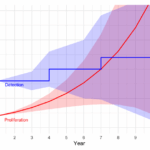 Dr. Stephen Herzog’s work is recognized by the Society for Risk Analysis.
Dr. Stephen Herzog’s work is recognized by the Society for Risk Analysis. - Getting Beyond Nuclear Deterrence: A Research Agenda
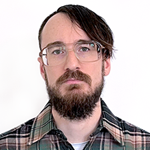 Dr. Stephen Herzog and co-authors lay out research directions for thinking about a durable nuclear-weapons-free world.
Dr. Stephen Herzog and co-authors lay out research directions for thinking about a durable nuclear-weapons-free world. - Why States Join Multilateral Nuclear Arms Control, Nonproliferation, and Disarmament Treaties
 Dr. Stephen Herzog publishes book chapter in volume on nuclear negotiations.
Dr. Stephen Herzog publishes book chapter in volume on nuclear negotiations. - Atomic Responsiveness: How Public Opinion Shapes Elite Beliefs and Preferences on Nuclear Weapon Use
 Dr. Stephen Herzog and co-authors investigate how varying levels of public support shape U.S. and U.K. policymakers’ willingness to endorse nuclear use.
Dr. Stephen Herzog and co-authors investigate how varying levels of public support shape U.S. and U.K. policymakers’ willingness to endorse nuclear use. - Reliable Not Reckless
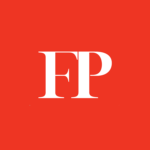 Dr. Stephen Herzog and co-authors analyze how global publics viewed the Biden administration’s extensive but restricted military aid to Ukraine in 2022-2023.
Dr. Stephen Herzog and co-authors analyze how global publics viewed the Biden administration’s extensive but restricted military aid to Ukraine in 2022-2023. - Better know a non-nuke: Iraq
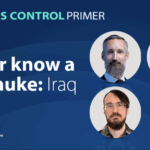 Dr. Stephen Herzog discusses the Iraq case and lessons for nuclear nonproliferation and verification on IISS podcast.
Dr. Stephen Herzog discusses the Iraq case and lessons for nuclear nonproliferation and verification on IISS podcast.
